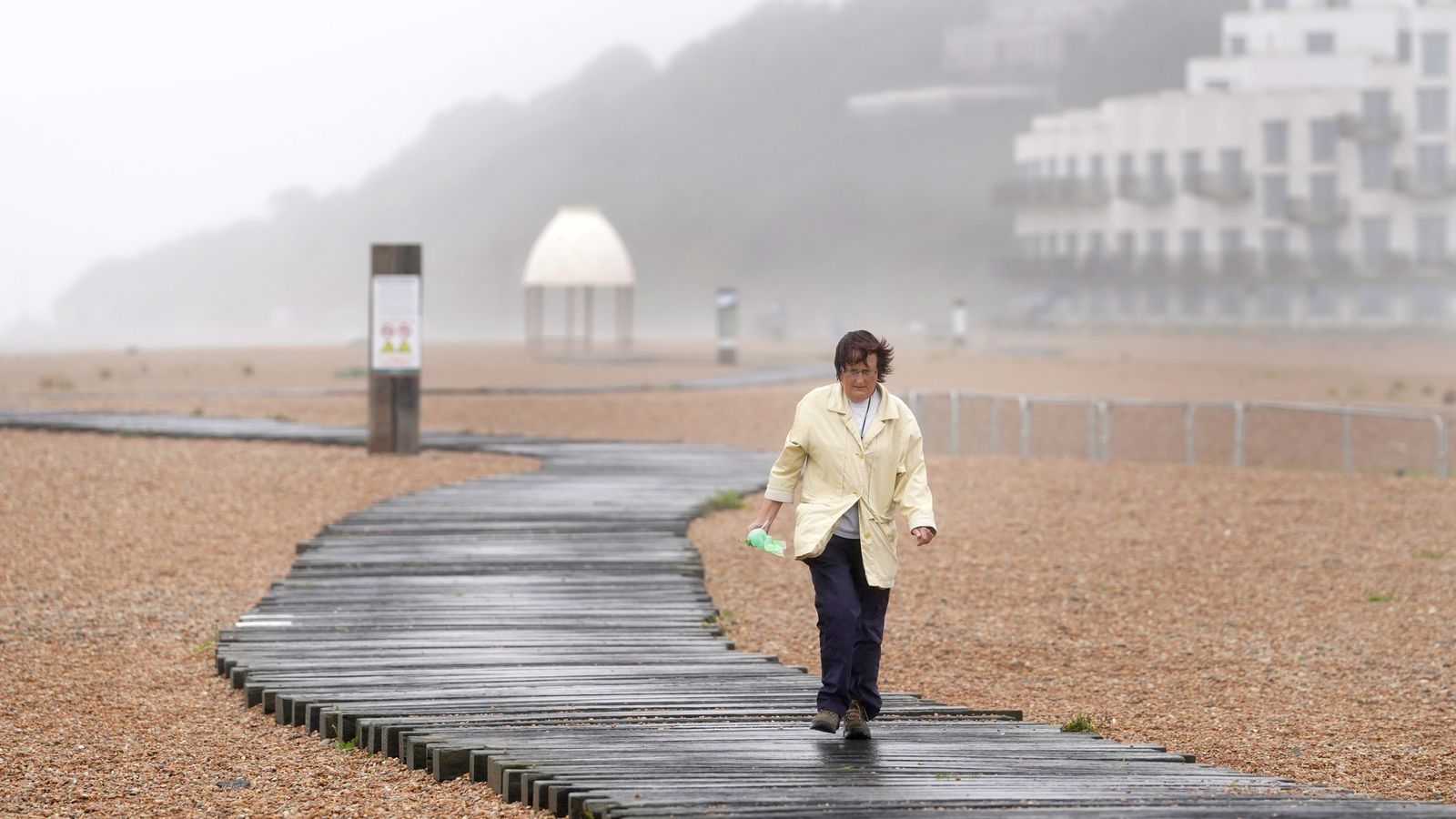It’s fair to say summer in the UK has taken a turn for the worse, following the warmest June on record.
But not everyone is put off by the bad weather, with tourists from across Europe flocking to Britain to enjoy the cooler, wetter climate.
It follows unprecedented temperatures on parts of the continent, which have forced holidaymakers to flee out-of-control wildfires or remain trapped indoors unable to enjoy the baking beaches.
Check the latest Sky News weather forecast
The Association of Leading Visitor Attractions said tourists are now coming to the UK to “escape”.
The organisation’s director Bernard Donoghue said: “We’ve seen a real boom in visitors from Spain, Italy, Greece, Turkey, to London, in particular, over the last three weeks.”
But there’s a warning that predictions of persistent downpours are affecting the number of British tourists visiting coastal towns.
Fiona McArthur, operations manager for the Bournemouth Coastal Business Improvement District (BID), said seaside hotels were “breathing a sigh of relief” when summer arrived in June until it took a “turn for the worst” in July.
She said hotel bookings were at a similar level to 2012 when there were also large periods of wet and rainy weather.
“Much like all of the businesses across the UK, I guess everyone is affected by rainy terrible weather,” she said.
“The hotels are saying that their bookings are around, say, 12% down on what they should be so it’s not an easy time and that combined with the cost-of-living crisis.”
Rainfall across the globe is determined by two things – how warm the air is and the movement of weather patterns across the world, according to the Met Office.
It says when warmer tropical air meets colder arctic air in the air mass above us, it causes large changes in weather we experience and can fuel more severe storms.
The Met Office says hotter air can hold more moisture and if the air has an unlimited water supply, like an ocean – then warmer air draws up extra moisture.
This results in clouds having more larger rain droplets and can be why showers in the summer are often heavier than in the winter.
The Met Office warns that as the climate continues to warm, the effect will increase and heavy rainfall events are expected to become more common.
On how climate change might affect the UK, the Met Office predicts the intensity of rain – how heavy rainfall is when it occurs – will increase.
In the summer, it says it could increase by up to 20% and in winter, it could increase by up to 25%.
Last month was the UK’s sixth wettest July on record, with an average of 140.1mm of rain across the month.
Forecasters believe a change in the weather will not come until the second half of August.
The Met Office said temperatures are unlikely to reach anywhere near the sweltering temperatures of last year. But forecasts suggest there will be warmer and drier conditions in the second half of August with some spells of rain.
The National Farmers’ Union (NFU) has also warned that its members could face “financial difficulty” if farmers are unable to bring in crops due to continued downpours.
Richard Heady, who runs a mixed arable farm in north Buckinghamshire, said that grains need to be harvested at about a 14% moisture level and up to an 18% moisture level if a farmer pays for drying.
However, Mr Heady estimated the moisture level on Wednesday was around the 30% mark.
Read more:
Will the UK stop being cold, wet and windy soon?
Scientists predict how often heatwaves of 45C will now occur
He said: “The main problem is that the longer the grains are out there, the quality is decreasing the whole time so we grow a lot of milling wheat, which is hopefully going to go out to make bread.
“But if they’re standing in the field and are not harvested for a while, the quality decreases so much that they no longer make the specification and we have to sell them for livestock feed.”
Another issue, he said, was the warmest UK June on record which has caused some crops to “die off early”.










